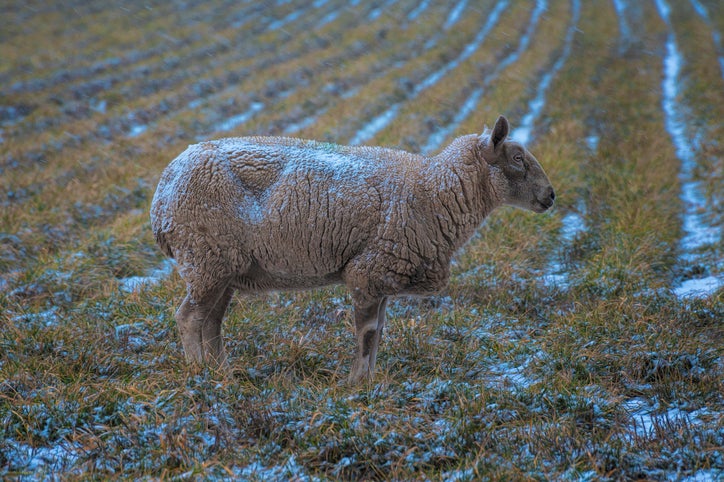
As part of this collaboration, ba&sh will continue to provide funding to farms in Uruguay that are transitioning to a regenerative approach, and introduce regenerative wool into its collections.
ba&sh explained this is a part of its aim to become a major player in transforming the knitted garment sector and join a global movement demanding increased efforts to protect biodiversity as well as reducing their carbon footprint.
The Nativa Regenerative Agriculture Program requirements are built on a triple-impact system, which the brand pointed out is based on scientific research that demands a higher level of rigour than seen in existing practices.
The methodology adopted includes:
- Introduction of perennial grasses into natural pasture land to produce higher quality food for sheep and provide the local ecosystem with living roots;
- Reintroduction of native tree species to provide shade for sheep and shelter for other wildlife, and to promote biodiversity;
- Restoration of the local ecosystem and biodiversity using streams, natural riverbanks and drinking troughs.
The ba&sh-funded programme has helped three farms transition to a regenerative approach, with around 8,000 hectares of land currently undergoing regeneration, adds ba&sh.
The brand said it wanted to go even further and has set a goal of 30% regenerative or transitioning wool in its collections by the end of 2025.

US Tariffs are shifting - will you react or anticipate?
Don’t let policy changes catch you off guard. Stay proactive with real-time data and expert analysis.
By GlobalDataFor this process, ba&sh shared it worked in harmony with the sheep-shearing cycle which involved a paradigm shift and involved reimagining its creative process and logistics, including rethinking how it worked with its partners within the supply chain to align with the farming calendar.
The wool obtained by ba&sh at the end of summer 2023 will be used in the 2024 winter collections.
Pierre-Arnaud Grenade, CEO of ba&sh, said: “By partnering with the Nativa Regenerative Agriculture Program, we hope to foster a more demanding and innovative relationship between the fashion industry and its agricultural partners. We are aware of the need to make further progress in certain areas to make fashion more environmentally friendly and respectful of life on our planet. Our approach
to today’s burning issues involves taking a holistic view, and regenerative agriculture meets all these criteria.”
Full supply chain traceability as the cornerstone of regenerative farming
Ba&sh explained a project of this kind requires full visibility of the supply chain and that it is committed to achieving a higher level of traceability and transparency in its supply chains, retracing the life cycle of its products using the Fairly Made specialist
tool. As well as using this tool, Ba&sh is also working on identifying, locating and pinpointing traceability in its suppliers, production sites and sub-contractors and their processes. Having full knowledge of its yarn processing partners is the key
to success in this type of project.
This partnership between ba&sh and Nativa began during the summer of 2023 with ba&sh defining the following pillars: social equity and improving the economic situation of farmers as well as animal welfare.
The brand believes it has the power to profoundly transform agriculture by regenerating soils and improving the resilience of farming systems.
The apparel industry is increasingly adapting regenerative practices and striving to create a positive impact on not just the environment but communities, and the overall well-being of the planet.



